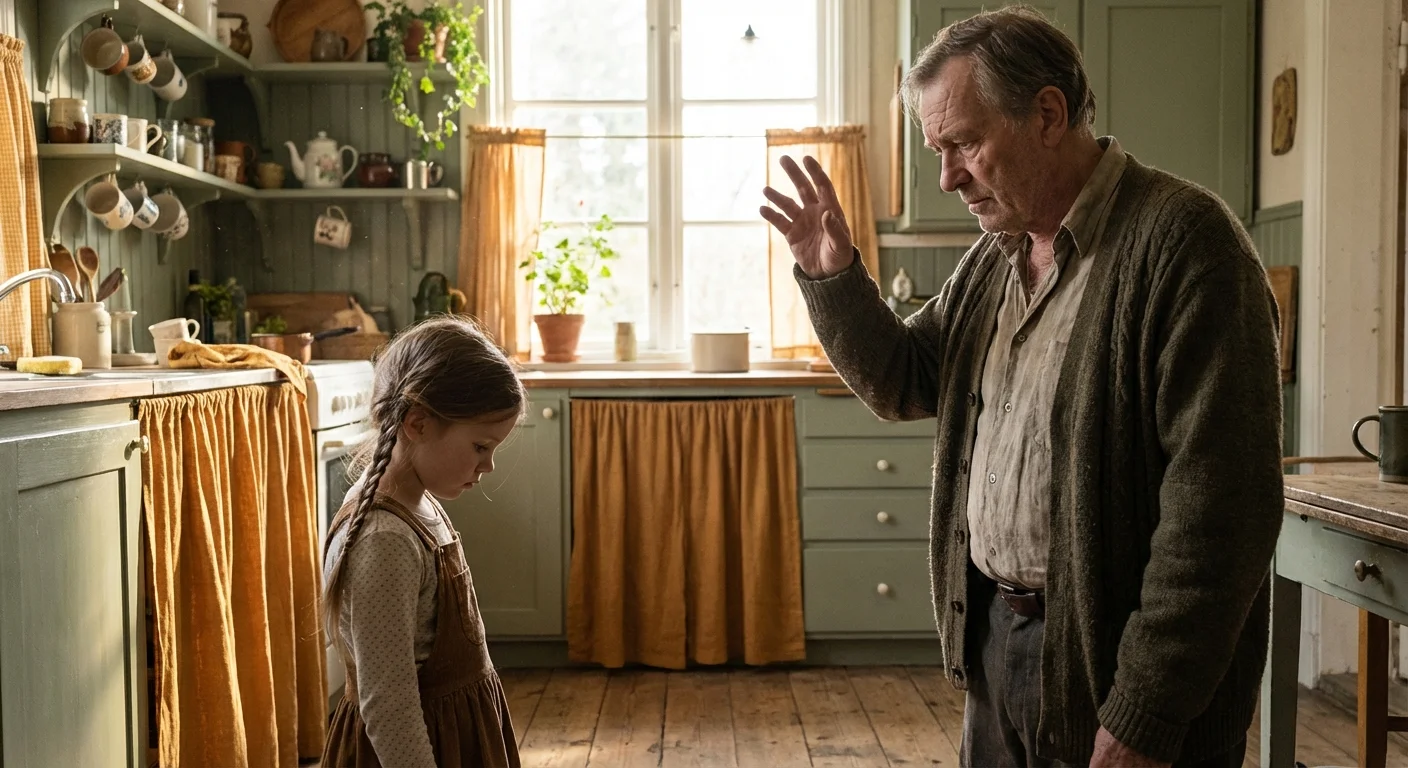
Have you ever thought that what you do and say can hurt your grandchildren?
You may not want to think that what you are saying or implying with your words and actions can hurt your grandchildren, but the truth is that it is easier done than we can all imagine.
Even if you do not think that you were affected by what your grandparents said to you back in the day, you can probably recall when your parents or an adult said something to you that stuck with you.
This does not mean that you have to bend over backward to not say something to the kids that could hurt their feelings or avoid scolding them when they deserve it, but you should be mindful of what you say to them.
There are phrases and attitudes we have that have been proven to, over time, end up hurting them in the long run.
The intention may have been motivating or encouraging, but kids internalize things differently, and the words can end up creating long-lasting problems in their psyche!
Be aware that what you say can carry more weight than intended. To make sure that your grandkids remember you fondly, we gathered some of the phrases and attitudes that grandparents mistakenly say and hurt their grandchildren, so that you know what to avoid and why you should do it!
Have your grandparents ever told you something that stuck with you? How did it affect you? Let us know in the comments below!

“You’ve put on quite a lot of weight.” or “Wow! You’re way too thin.”
As grandparents, we are worried about the kids’ weight when they lose or gain too much. It can be a sign of an underlying problem, or it could be that they are overeating or not getting enough nutrients.
However, you should never take the attitude of constantly commenting about their weight around them, especially if they are young or if you just saw them.
When you constantly bring up their weight and criticize it, it can end up creating a negative view of themselves in their minds, and your concerned words can be seen as blame.
Not to mention, if you are worried about their weight, you should be talking with the parents, not with the kids. Generally, they eat what they are given and/or allowed, so it is not a kid’s fault.
As long as they are healthy and active, you should leave weight topics off the table at all times.
“My grandkids would NEVER do that.”
There are a lot of problems with the attitude that your grandkids would never do or say this or that. The biggest stems from the words you are saying and from the way you are perceiving them.
Not only is saying something like this implying that you do not believe they could ever do no wrong, but it can also send the wrong impression, and you can end up with spoiled grandkids on your hands really fast.
Let’s be honest, kids make mistakes and lie and get into all sorts of trouble, and they should be facing the consequences of their actions. This does not mean to over-punish them, but if they break a window while playing, you should not cover for them.
You should explain to them what they did wrong and see how you can resolve the issues. Sure, it may be uncomfortable for the grandchildren, but this is how they learn to be responsible and not get the impression that the grandparents will save them no matter what they do.
What’s more, the word “never” carries a lot of pressure. Not only should you reserve it for important moments, like when they should keep a secret and not repeat it to others, but if you use it too often, it can lose meaning and both create unnecessary stress.
What’s more, getting used to using it can lead to using it when you are angry, and no grandchild should hear the likes of “I never want to see you again.”

“What are you crying for?” or “You’re not a baby anymore.”
As a grandparent, you should not teach the kids to not show their emotions. Sure, they may end up being overly emotional, and you may not know how to deal with it, but telling them things like these can only end up creating shame and making them feel negative emotions.
The best way to deal with kids who are very emotional and cry easily is to teach them how to deal with their emotions. They can cry, but crying over everything may be something they learned will bring them what they want.
You can ask them, “What made you so upset?” and see why they are crying. Then you can show them how they can solve their issue or guide them through how they can request things without having to resort to crying.
After all, if they “cry wolf” all the time, you will also never know if they need help or not.
Teaching our kids to understand and manage their emotions is vital. This is why we have been reading to them since they were little, and this book about emotions has been a hit with our grandchildren!
“You’re such a klutz.” or “Why are you so sensitive? Learn to take a joke.”
Labeling children is never a good thing. Sure, it can be a harmless joke or comment, but if it keeps appearing in conversation, the kids will slowly learn that making mistakes is not acceptable; it will bring about anxiety, and they will start feeling nervous around you.
This pressure can push them to feel like they need to perfect, or otherwise, grandma and grandpa will no longer love them. This can, in turn, end up creating a performance streak in them, which can damage their academic and adult lives later on!
Allow them to make errors and tell them to be more careful, but keep away from labeling them or making their personality based on one trait they have; it can be something they are not confident about, and it will damage your relationship with them.

“Your sister/cousin/friend can do it, why can’t you?”
Comparing kids, be they inside the family or with their friends, is not a good thing to do. Sure, you may think you are motivating them to do better and strive higher, but in reality, kids will learn that they are not good enough.
These types of comments lower their self-esteem, and they in turn internalize that they are not enough in your eyes, slowly cultivating an inferiority complex.
Down the line, it can end up creating a lot of resentment, be it towards their grandparents (or even parents) or towards the other kid they are being compared to.
Remember when you were young? If you were always compared with Jared, who was always good at everything, it did not make you want to try more; it made you want to give up, and you slowly started to hate Jared.
Stop the comparison, even if it is well-intentioned. It can end up forever damaging your relationship with your grandkids, and it will be the only thing they remember down the line.
“You won’t get it. ” or “I’ll show you when you’re older and can understand it.”
These types of words and attitudes towards kids can end up damaging their self-esteem and internalizing the fact that they are too dumb, stupid, or slow to participate in conversations or activities.
Sometimes it will make them feel way too dismissed, and they will never ask for explanations or help from you.
Sure, some things are too hard for them to understand, too complex, or not age-appropriate, but you can find a way to explain them in a way they are going to be satisfied with the answer and not feel stupid.
You can also redirect them to their parents so that they can answer the questions you think you are not prepared to handle.
These are just some of the things you can do and say that could end up hurting your grandchildren, even if you have never intended to do so! If you are curious about what else could end up damaging their upbringing, make sure you check out this article here!










